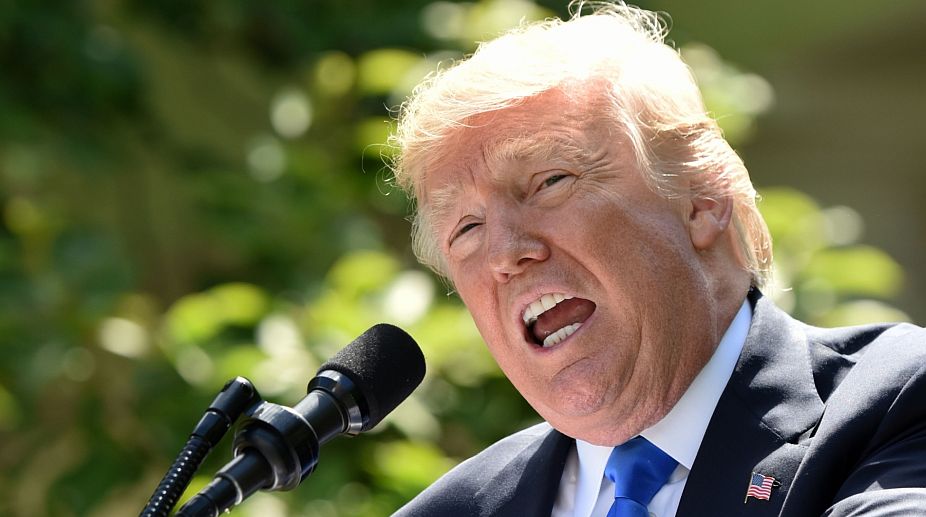Border Message
In the tumultuous landscape of immigration discourse, the resonance of former President Donald Trump's border message extends far beyond his political base.

US President Donald Trump (Photo: IANS))
A combative President Donald Trump has insisted “there is blame on both sides” for the deadly violence last weekend in Charlottesville, Virginia, appearing to once again equate the actions of white supremacist groups and those protesting them.
The president’s comments yesterday effectively wiped away the more conventional statement he delivered at the White House one day earlier when he branded members of the KKK, neo-Nazis and white supremacists who take part in violence as “criminals and thugs.” Trump’s advisers had hoped those remarks might quell a crush of criticism from both Republicans and Democrats.
The president’s retorts yesterday suggested he had been a reluctant participant in that cleanup effort. During an impromptu press conference in the lobby of his Manhattan skyscraper, he praised his original response to Charlottesville and angrily blamed liberal groups in addition to white supremacist for the violence. Some of those protesting the rally to save a statue of Confederate General Robert E. Lee were “also very violent,” he said.
Advertisement
“There are two sides to a story,” he said. He added that some facts about the violence still aren’t known.
His remarks were welcomed by former Ku Klux Klan leader David Duke, who tweeted: “Thank you President Trump for your honesty & courage to tell the truth.”
Democrats were aghast at Trump’s comments. Sen Brian Schatz, a Hawaii Democrat, said on Twitter that he no longer views Trump as his president.
“As a Jew, as an American, as a human, words cannot express my disgust and disappointment,” Schatz said. “This is not my president.”
As Trump talked, his aides on the sidelines of the lobby stood in silence. Chief of staff John Kelly crossed his arms and stared down at his shoes, barely glancing at the president. Press secretary Sarah Huckabee Sanders looked around the room trying to make eye contact with other senior aides. One young staffer stood with her mouth agape.
When asked to explain his Saturday comments about Charlottesville, Trump looked down at his notes and again read a section of his initial statement that denounced bigotry but did not single out white supremacists. He then tucked the paper back into his jacket pocket.
Violence broke out Saturday in Charlottesville, a picturesque college town, after a loosely connected mix of white nationalists, neo-Nazis and other far-right extremists assembled for the largest gathering of its kind in a decade.
Heather Heyer, 32, was killed when a man plowed his car into a crowd of counter-protesters.
Trump, who has quickly deemed other deadly incidents in the US and around the world acts of terrorism, waffled when asked whether the car death was a terrorist attack.
“There is a question. Is it murder? Is it terrorism?” Trump said. “And then you get into legal semantics. The driver of the car is a murderer and what he did was a horrible, horrible, inexcusable thing.”
Trump said he had yet to call Heyer’s mother, said that he would soon “reach out.” He praised her for what he said was a nice statement about him on social media.
As Trump finally walked away from his lectern, he stopped to answer one more shouted question: Would be plan to visit Charlottesville? The president’s response was to note that he owned property there and to say it was one of the largest wineries in the United States.
Advertisement